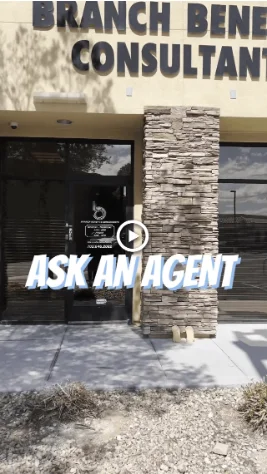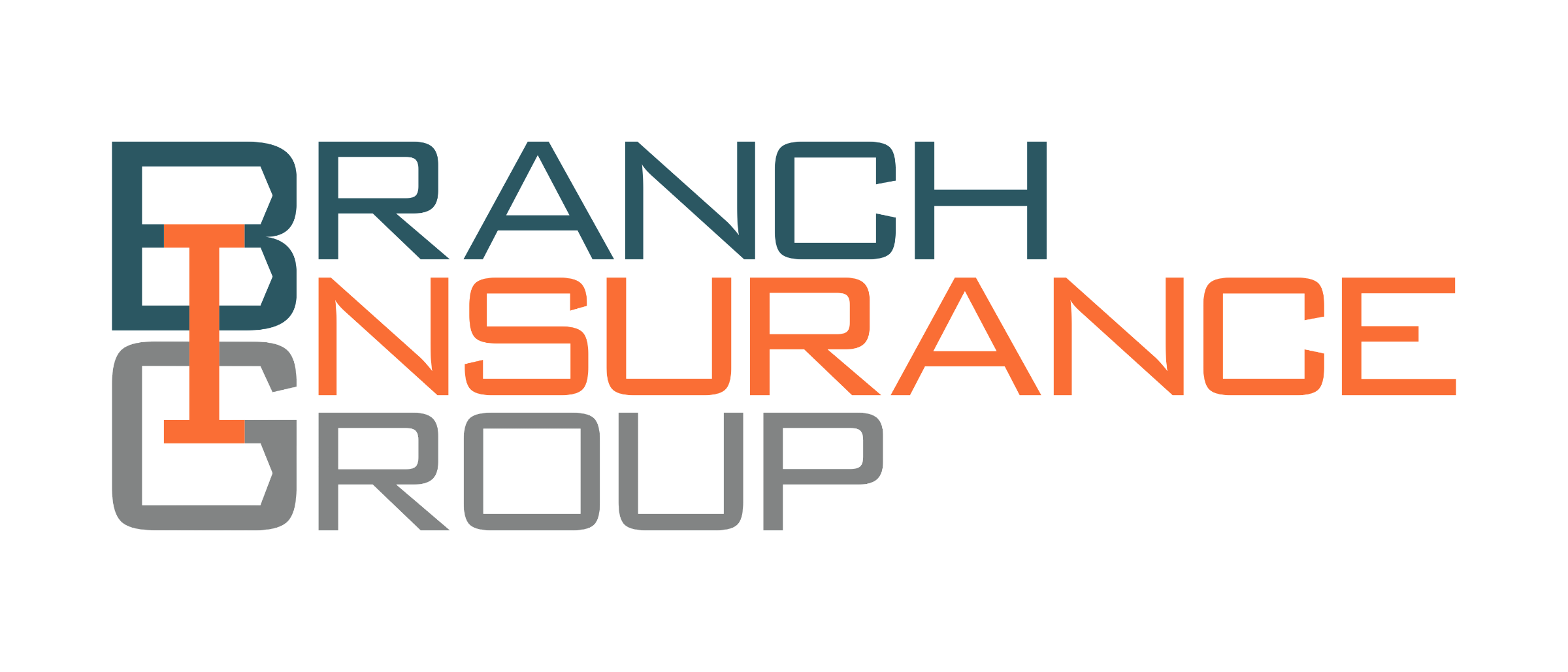Need Insurance in St. Louis, MO?
About to buy a new home? Looking for better auto insurance? Worried about protecting your family, pets, and belongings? Or just want to compare rates with your current insurance? We’ve got you covered.
Navigate to:
Auto Insurance
Home Insurance
Renters Insurance
Condo Insurance
Umbrella Insurance
Motorcycle Insurance
Boat Insurance
RV Insurance
Life Insurance
Business Insurance
More information on your destination:
Top 5 things most people don’t know about St. Louis, Missouri
Get to Know the St. Louis Neighborhood
If you’re moving to St. Louis, Missouri it’s important to make sure your insurance coverage is in place. The insurance laws in St. Louis may be different than where you’re living now, but don’t worry! Our insurance agents are some of the most experienced experts in the business, and we can help you reestablish any policy you may need.
If you already have insurance and you’re just looking for lower premiums, you can easily make changes to your insurance policy. If you do not have insurance, here are some important tips on various policies for residents of St. Louis.
St. Louis Auto Insurance
What is auto insurance and why do I need it?
What would you do if your car was totaled tomorrow? If you couldn’t drive to work, it would be much more difficult to support yourself and your family. Even the smallest accidents can end up costing thousands of dollars, and it’s simply not worth taking that risk. Our advice is to get auto insurance so you are protected in the event of something happening to your car.

Auto insurance is also known as car insurance or vehicle insurance. It is designed to protect you from financial loss if your vehicle were damaged or stolen. Auto insurance coverage can vary depending on the company and what state or country you live in, but there are some standard coverage types most providers offer:
– Bodily Injury Liability pays for medical expenses due to an accident that was your fault. If someone else caused the accident, this policy will pay their medical expenses. This type of policy typically covers up to $100,000 per person and $300,000 per accident.
– Property Damage Liability pays for damages to property (buildings) because of an accident that was your fault.
– Collision / Comprehensive pays for damages to your car if you get in a collision or it is stolen. This type of auto insurance coverage typically provides reimbursement up to the value of the vehicle. This also covers damages from flooding or other natural disasters that were not caused by the insured or another.
– Personal Injury Protection (PIP) covers medical expenses from injuries that occurred while driving or riding in your vehicle. It also will cover lost earnings and funeral expenses, but only if you are unable to work because of an accident caused by someone else. This type of policy does not typically include property damage liability coverage, which means there would be no reimbursement for damages to other people’s cars.
We can help you decide what types of coverage make sense for your needs and budget, but keep in mind that having auto insurance is the most important financial decision you can make. Even if you are only driving occasionally, you still need to protect yourself with auto insurance coverage because liability applies anytime someone else is in your car. Having this protection could save you money and lots of stress down the road.
Does Missouri require car insurance?
Missouri drivers must have liability insurance that meets the minimum limits (you can purchase more coverage if you choose) required by law to drive on our state’s public roads and highways. The minimum limits of liability insurance required under Missouri law are:
- Bodily Injury Liability – $25,000 per person and $50,000 per incident
- Property Damage Liability – $25,000 per incident
You can’t register a car in Missouri without insurance, so if you’re planning to move to St. Louis you’ll need to add this to your to-do list!
What is uninsured motorist coverage?
Many drivers have auto insurance to protect them from accidents that result in injuries and property damage. However, an accident may occur with a driver who doesn’t carry any insurance or whose insurance policy limits aren’t enough to cover all the damages. That’s where uninsured motorist coverage comes in.
Put simply, uninsured motorist coverage compensates you for losses resulting from an accident caused by an uninsured person. However, not everyone is automatically covered under this type of insurance, as one usually has to purchase such protection as part of their car insurance package. It becomes important especially if you’re living in an area with a high percentage of uninsured motorists on the road at any given time.
About 10% of drivers in Missouri do not carry auto insurance of any kind or have dropped their policies.
Some states may even require drivers to carry uninsured motorist insurance in order to protect their own interests when involved in an accident with a negligent or at-fault driver who does not have auto insurance or enough insurance to cover all damages that they are legally obligated to pay under the damages clause of your policy. Even though Missouri does not require uninsured motorist coverage it’s wise to have it in case this happens to you.
Uninsured motorist coverage also protects you against hit-and-run accidents where the other driver is unknown or flees the accident scene to avoid being identified later even though he/she may have been responsible for causing the accident. Uninsured motorist coverage extends itself only to those who are legally entitled to recover damages from an uninsured party, specifically your passengers whose medical costs, lost income, etc. must be covered if they sustain a physical injury as a result of an accident with another car that carries no insurance or insufficient liability insurance.
If you have purchased this coverage by availing uninsured motorist protection on your auto policy, it would work like any other insurance that pays off a loss. Payouts from uninsured motorist coverage would be in addition to any other compensation you receive because of the accident, including damages paid by the negligent driver’s insurer under your policy.
Our agents are standing by to help you find the best possible deal on auto insurance, contact us today to find out more.
Home Insurance in St. Louis

If you’re looking to get insurance quotes for your home, we know insurance rates can be incredibly expensive. That’s why we’re proud to provide the best insurance rates in St. Louis and the surrounding zip codes of 62206, 62090,62240, 63125, 63123, 63119, 63144, 63117, 63105, and 63133.
Home insurance rates often vary depending on the area you live in because certain areas have a higher risk of damage due to natural disasters. Our team can help you assess risk factors when considering quotes for your home policy.
Buying a home is the biggest financial commitment many people make in their lives. Protecting that investment with insurance can be challenging, but learning more about homeowner insurance in St. Louis, MO will help you find what you need.
What are the different types of home insurance?
There are two main categories of insurance for your home: property insurance and liability insurance. Property insurance protects the value of your house from damage or loss due to specific events. There are several kinds of property insurance, including fire insurance, flood insurance, earthquake insurance, and windstorm insurance. Liability issues arise when someone else suffers an injury while on your property due to something you did – accidentally or not – or if there’s damage caused by your animals. Homeowner policies generally offer liability insurance as a standard feature.
This insurance usually protects your house from most natural disasters, but you might want to consult with one of our agents just to be sure. Make sure to check the details of your coverage, because there are exclusions and limitations that vary from policy to policy.
What is the best kind of homeowners insurance in St. Louis?
The best kind of insurance, as far as price and coverage, is insurance that has a high deductible and high limits – this way, if anything happens to your house, you’re covered for 100% of the cost up to the insurance policy’s limit.
Our insurance agents in St. Louis can help you understand how insurance works. Most policies come with liability protection so if somebody gets injured on your property or if somebody’s property gets damaged while on your property you will be covered. If you plan on living in your house long term it is always a good idea to get insurance. Also, if you have insurance on your car, you should definitely try to bundle it with insurance for your home as well. It can save you money and it’s a great way to protect all of your investments!
What will my home insurance cover?
Home insurance covers much more than just your home. Most policies will cover your household goods, belongings at the home office, and many other items that may not be readily obvious. Below are some common coverage areas to expect from a home insurance policy in St. Louis.
You can expect nearly all home insurance policies to include coverage for valuables and personal items inside the home. The exact items covered will vary from policy to policy, but things like jewelry and electronics are usually included under this section.
If you have any expensive items, you should check with your home insurance provider to ensure they are not specifically excluded from being covered in the event of a casualty loss.
Your home is likely one of your most valuable assets and it can be protected through a coverage area commonly referred to as dwelling coverage. Dwelling coverage protects things like the structure and foundation of your home, as well as the electrical and plumbing systems.
Home insurance policies will also include coverage for things like temporary living expenses should a covered loss force you to leave your home temporarily. Moving costs may also be included in some policies.
In addition to dwelling coverage, a homeowners policy offers detached structures coverage that can protect detached buildings on your property such as a shed, detached garage, workshop, or pool house. This coverage will usually be subject to a separate policy limit than your dwelling coverage so you’ll want to check the limits of your policy carefully to be sure they are sufficient for your needs.
As you can see, home insurance is much more than just protecting the home itself. Contact the Richard Rose team today to learn more about how to protect your home and everything in it.
For more information about Missouri insurance visit: https://insurance.mo.gov/. To speak with our experienced agents about how to find the best policy for your home, contact us today.
Affordable St. Louis Renters Insurance
Your home insurance doesn’t cover everything. Renters insurance is exactly what it sounds like – it’s an insurance plan for renters. If you are renting, or you’re considering renting instead of taking out a mortgage to buy your own home, then you may have heard the term bandied about with some urgency.
So, what does renters insurance cover?
Unlike homeowners insurance, which you need to buy if you have a mortgage for a house or land on which you plan to live, renters insurance is not mandatory. However, it can be extremely beneficial in safeguarding your possessions and providing financial protection from various risks associated with renting.
Renters insurance policies vary widely – they depend primarily on how much coverage you want, and what types of coverage you choose.

But one thing they all have in common is that renters insurance provides liability protection for your living expenses if someone gets injured or their possessions are damaged while on the premises. Typically, renters insurance also covers temporary accommodations if your apartment is deemed unlivable after some kind of disaster, such as a fire or flood.
Liability coverage protects you if someone is injured in your apartment, and their medical bills exceed the deductible on your policy (if you have one). Your renters insurance may also cover damage to another person’s property caused by you, for example, if you accidentally break a window in someone else’s house while moving out.
Even if you don’t have a hoard of expensive possessions, renters insurance may be worthwhile for you. Many renters policies cover your property even when it is stolen outside the apartment building, such as in a robbery. Others include off-premises coverage that reimburses you up to a certain dollar amount per day if your things are stolen while you are traveling.
Renters insurance policies may also include personal liability coverage, which protects you if someone is injured on your property and sues you for damages of more than the deductible. For example, if a friend trips over your child’s toy in your living room and breaks his nose, even though it wasn’t your fault, you could be sued for damages. Personal liability is often required as a condition of your lease, but you’ll want to check the small print before signing on that dotted line.
Despite the fact that renters insurance is not mandatory, many landlords require tenants to have a renters policy before signing a lease. Some landlords offer their own insurance policies for tenants at low cost or even free of charge. But these policies may have many restrictions. For example, they usually cover only the building itself, not your personal possessions.
When deciding whether to get renters insurance, consider how much coverage you want and what risks you face in your living situation.
Can roommates share renters insurance?
Many people decide to rent a place on their own, but some opt to live with roommates. So, when you have a roommate, is it possible to split the cost of renters insurance and get a cheaper rate? The answer is yes! You can save money by splitting renters insurance with your roommate(s).
A bonus to renting with roommates is sharing the rent, but if you are also splitting the renters insurance cost equally your monthly costs will go up and your policy will be covering double the belongings. Split renters insurance cost by square footage; it may be helpful to measure the square footage of your living space and divide it equally among roommates. If one roommate has a lot more square footage than another, you may want to negotiate a slightly higher rent so the roommate with more square footage pays a little bit more.
Branch Insurance Group offers 100% free consultations to new renters on the ins and outs of a rental insurance policy – call us today or ask for a quote to find out more.
St. Louis Condo Insurance
Why should you purchase condo insurance and what does it cover?
A condo association contributes funds into a reserve account for future repairs or replacements on common areas. In addition, some associations take out insurance on their common elements such as roofs, elevators, pool equipment, etc., but this policy does not cover the damage on your unit from events such as fire or theft. Condo insurance – which is separate from Home Owners Association insurance – covers any damage caused by perils listed in your individual insurance policy.

Insurance for condo associations can be complicated, especially when it comes to insurance coverage. Condo owners are often confused about how condominium association insurance works and what kind of coverage they need, so here is an explanation of this type of insurance.
Insurance for condo associations falls under the umbrella term “HO-6 Insurance” from the Department of Housing and Urban Development (HUD). This type of insurance provides coverage for condo associations, which are legally referred to as planned communities. Insuring condominiums is different than insuring single-family homes because there are multiple owners who live in the same building or on the same property. The distinction between a single-family home and a planned community is that homeowners in a planned community share common spaces.
What will condo insurance cover that renters insurance doesn’t?
As with homeowners insurance, condo insurance comes with standard coverage and optional coverage. Standard coverage includes liability protection for bodily injury or property damage, personal belongings inside of your unit, and additional living expenses if you have to evacuate your condo. Optional coverage includes personal umbrella liability, medical payments for people who get injured, and additional living expenses if you have to leave the building due to a fire or other disaster.
Living in a condo also brings risks of higher insurance premiums than renters insurance. Let’s discuss the differences between condo insurance coverage vs. renters insurance to help you decide which to invest in.
Renters insurance is a policy that protects the owner of a rental property from financial risks associated with renting out the unit, such as damages caused by tenants and liability claims like accidents on the premises.
Condo insurance coverage also protects against financial losses but has specific differences such as protecting against damage in any of those common areas such as hallways, amenities, and landscaping. It also covers the interior of the unit against disasters such as fire and theft.
Condos normally have more people living in them, which means there is a higher risk of accidents happening within the property. Also, there are more opportunities for theft, vandalism, and other mishaps that can cause huge financial losses for you. Add this to the insurance premiums being higher than renters insurance premiums because of the higher risk, it is definitely worth the investment if you are already living in a condo.
If you would like to invest in condo insurance coverage, be sure to get quotes from one of our agents about what you should expect to pay for the condo insurance policy. Also, be sure to check if there are any discounts towards the condo insurance premium because of where or what level of coverage you choose. You also want to make sure that you are getting all the boxes checked on your part because it is not worth having a policy that does not give you the true protection that you deserve.
Make sure to do your research about condo insurance coverage vs. renters insurance to make sure you are getting the most for your money and providing yourself with the best coverage possible. Do not let bad experiences befall you because of not having a proper amount of condo insurance. Our team is standing by to answer any questions you may have and to help you find the perfect policy to protect your condo – get in touch with us here.
St. Louis Umbrella Insurance
Umbrella insurance is a type of liability insurance that acts as a supplement to your current insurance policies. Umbrella policies help with expenses that exceed standard policy limits. In America today, one out of every three people will face a lawsuit during their lifetime. Most of us have insurance for our homes and our cars, but few understand what umbrella insurance is or why everyone needs it.
All drivers need car insurance to protect themselves from accidents they may cause. Homeowners also need coverage to pay for the damages if someone were injured on their property. Umbrella Insurance provides excess liability protection over and above existing auto and homeowners policies and can help protect assets such as bank accounts and property.

Many lawsuits involve injuries that exceed the limits on homeowners or auto insurance policies. Umbrella Insurance can protect you against things like wrongful injury, libel, slander, false arrest, and other claims where liability limits on standard insurance policies do not offer enough protection.
For example, if someone sues for damages because they were injured while on your property, most standard insurance policies have a limit of $100-200 thousand dollars to pay court costs and damages. Umbrella insurance would provide a higher coverage up to $5 million dollars, the typical minimum umbrella policy.
While our standard policies help us manage our day-to-day lives, umbrella insurance helps protect against major liabilities where the cost of defending yourself in a lawsuit could put personal assets at risk, such as your home or savings.
Umbrella insurance is a great way to protect you from the unexpected, so be sure to speak with one of our agents for more information about umbrella insurance and how it can complement your existing insurance policies. Don’t wait, contact Branch Insurance Group today to learn more about how to protect your life savings with an umbrella policy.
St. Louis Motorcycle Insurance

What is motorcycle insurance and how is it different from auto insurance?
Motorcycle insurance works in a similar fashion to car insurance. It provides financial protection in the event of an accident, theft, or damage to your vehicle.
However, motorcycle insurance policies are generally much cheaper because motorcycles tend to be less expensive than cars. In addition, they don’t cause as much damage when they collide with another vehicle or object.
The main difference between auto insurance and motorcycle insurance lies in their comparative cost. For example, a policy that provides a million dollars of coverage for a mid-size sedan typically costs over $700 per year. Conversely, most comparable motorcycle insurance policies only cost around $300 per year. In addition, insurance companies only require motorcycle insurance policyholders to have liability insurance protection of $10,000 – $20,000 instead of the standard $100,000 required for car insurance.
In fact, if you own both a motorcycle and a car, it is recommended that you buy two separate insurance policies. This way you can take advantage of lower premiums offered by motorcycle insurance plans without sacrificing the liability coverage required for your car insurance plan.
Motorcycle riders may need additional rider training before obtaining their license but research shows they tend to be more skilled than other drivers on the road. For example, statistics show that motorcycle riders are twice as likely as drivers to see an obstacle in time to avoid a crash. In addition, motorcycle insurance policies in St. Louis offer much cheaper rates than car insurance because motorcycles do less damage when they collide with other objects or vehicles.
Remember to be safe when riding:
- In 2019, motorcyclists were nearly 29 times more likely than car occupants to die in a crash, measured per vehicle miles traveled by the National Highway Traffic Safety Administration (NHTSA).
- Always wear protective gear while riding! Helmets are estimated to be 37% effective in preventing fatal injuries to motorcycle riders and 41% for motorcycle passengers. In other words, for every 100 motorcycle riders killed in crashes while not wearing a helmet, 37 of them could have been saved had all 100 worn helmets (NHTSA).
To learn more about motorcycle safety and best practices, visit https://www.nhtsa.gov/road-safety/motorcycles.
Branch Insurance Group offers competitive rates and free consultation on all motorcycle policies. Contact our team for more information.
St. Louis Boat Insurance
What is boat insurance? Boat insurance, also referred to as marine insurance, can be used for personal or professional purposes and usually covers items such as trailers and other equipment.
The first step in the boat insurance process is to determine how much coverage you need. Some people will want insurance that covers all costs up to a million dollars if their ship sinks. Other people may only need $500,000 worth of coverage for an additional fee. It’s important to think about what kinds of risks you’re willing to take before choosing your amount of insurance because it determines how much you pay every month for insurance premiums.

There are many types of policies available for insuring a boat: hull insurance, which covers damage done to the ship itself; liability insurance, which covers damage done to people or objects; and comprehensive insurance, which includes hull insurance as well as coverage for accidents that occur because of storms.
Boats are usually insured through an insurance company, just like vehicles such as cars and motorcycles. The amount you pay for boat insurance depends on whether your ship is new or old, its size and type, how close it is to a major port, and the region where you live. This means that insurance costs vary from state to state, or even country to country, but there are ways to save money on insurance premiums. Often, insurance prices depend on a person’s driving record – this means those who have been convicted of committing boating offenses in St. Louis can expect to pay more for boat insurance than those who have clean records. Insurance premiums may also depend on a boat owner’s age, sex, and insurance claims history. It is important to know the insurance requirements in St. Louis so that you can meet them if they exist.
Our agents are ready and waiting to help you build the perfect policy for your boat, get a free consultation by contacting us now.
St. Louis Recreational Vehicle (RV) Insurance
Just purchased a big shiny new toy and can’t wait to travel? Before you hit the road, have you signed up for RV insurance? RV insurance is designed specifically for recreational vehicles, or vehicles that are primarily used for recreation. These vehicles are insured in much the same way as other vehicles are, with a few important caveats.
Recreational Vehicles often require extra attention and care when they’re being operated because of their size and relative lack of maneuverability compared to normal cars and trucks. There may be different laws than what you’re accustomed to, and taking your RV out on the road means that you need to be aware of state and local RV laws so that you don’t break them – doing so will likely void any RV insurance policies you have.

RVs also hold a lot of different equipment and systems that need to be taken care of, from the kitchen stove to the water tanks. If you have an RV with a refrigerator, your insurance needs to cover replacement if it breaks down.
Recreational Vehicles also require more maintenance than a normal car because they’re larger and carry many more expensive parts inside them – this means that those who are new to operating RVs often find themselves racking up repair bills as they learn how their particular units operate and where all those little moving parts end up when not in use. Without RV insurance, these costs may leave you high and dry as the costs of repairs would likely far exceed the amount of cash you currently have on hand.
Some common RV insurance policies include:
– Accident forgiveness, which kicks in even if you’ve had an accident or two before signing up
– Roadside assistance will come and help you if your RV breaks down while traveling on the road. This may include towing or other basic services designed to get you back on the road as quickly as possible.
– Protection against all sorts of different weather conditions such as hail, wind, and snow is especially important for those who travel in areas where the climate varies widely from one season to another throughout the year.
– Replacement coverage for appliances and other parts should they fail. If your RV insurance doesn’t cover these expenses, it’s likely that there will be a deductible amount (the amount you’ll need to pay out of pocket before your RV insurer will reimburse you), meaning that the costs may be high.
Conditions can vary depending on factors such as where you live, how old your RV is, and what model it is – for example, motorhomes are generally more expensive to repair or replace if they break down but are easier to operate than RVs with larger trailers behind them.
“Can I just drop insurance anytime?” one might ask – the short answer is no, just like in most other forms of insurance there are laws that mean that in most states you cannot cancel coverage until a set period of time has passed since you bought your RV insurance policy.
There are different Recreational Vehicle insurance coverage requirements in each state, so make sure to check with your local DMV if you want to find out what’s required of you before you go on the road. Some states may also require that your insurer file proof of insurance with them for some added peace of mind.
St. Louis, MO DMV information: https://dor.mo.gov/motor-vehicle/.
Before you hit the road, contact the team at Branch Insurance Group and let us help you keep your RV fully protected throughout your journeys.
St. Louis Life Insurance

Why do I need life insurance?
Life insurance is a common purchase for everyone, and is primarily used to provide financial support for your loved ones should you pass away.
If you were gone tomorrow, would your wife, children, or parents be able to manage financially? Would they be able to keep the bills paid? Would they have to sell the house that you worked so hard on building together just because you’re not there anymore?
A life insurance policy gives peace of mind in knowing that if anything were to happen to you, your partner, children, or other family members will not have to worry about money. Your insurer would pay out a lump sum amount which could help your family overcome any financial hurdles. Life is unpredictable and you should prepare for the future, which means doing everything you can to protect the ones you love most.
What does life insurance cover?
In simple terms, life insurance covers the lives of people. This may be a good way to think about your own life insurance coverage. Instead of thinking about what you’re getting when you purchase a policy, it helps to think about all the things that would affect your family if you were no longer around.
Depending on which type of life insurance policy you have, it will help pay for specific life events and circumstances. These include:
– final expenses such as funeral costs and burial fees
– outstanding debt such as credit cards or a mortgage
– income replacement so your spouse can continue paying bills
What types of life insurance are available?
When life insurance is considered, one of the main questions that come to mind is “What type of life insurance do I need?” There are many types of policies available and it’s important to be well informed about the differences.
Life insurance may cover a wide range of needs; for instance: final expenses (burial costs or cremation fees), mortgages, children’s education plans, and disability plans.
The difference between each policy can be very small or large depending on what you are hoping to use them for. The most common ones are described below. Please note that there are also group policies that will have different coverage options than those mentioned here.
Term Life Insurance: Term life insurance is the most basic form of life insurance and covers people for a specific period of time. It’s usually much cheaper than other kinds and does not cover anything except death. Payouts from term life insurance policies are typically tax-free since it only pays out upon the insured person’s death.
Whole Life Insurance: Whole life insurance can be seen as permanent life insurance because instead of having a term period, the policy stays in effect up until the insured person’s death even after payments stop being made on it. The premiums stay level throughout this process making it a bit more expensive than term life insurance with the same coverage and length.
Universal Life Insurance: Universal life policies, also known as flexible premium life insurance, allow people to choose how much they want to pay per month. Oftentimes, these premiums can fluctuate over time but it offers more flexibility compared to whole life insurance since policyholders don’t have to make a fixed payment each month.
Variable Universal Life Insurance: This type of policy is similar to universal life insurance in some ways except that you can invest your monthly payments into different investment options. Since this allows policies to be customized even further, it usually comes at a steeper fee which means less money paid out on a claim compared to other types of life insurance.
Permanent Life Insurance: Permanent life insurance is just like universal and variable universal policies except it is usually much more expensive and has a payout amount that can never decrease during the insured person’s life, even if premiums stop being paid.
Term to 100: This type of coverage gets its name from the fact that it pays out in full if you die within a certain number of years, typically ten or 20. It covers death only, no other events. If you live past the term limit, your policy will usually be converted to another type of plan by your provider automatically.
Convertible Life Insurance: A convertible life insurance policy is similar to a term to 100 plan with deductions for survivors, but offers options for converting into another type of life insurance plan. This usually happens if you outlive the term limit, at which point you may choose between converting it to a different kind of policy or simply canceling the coverage. To convert it, your policy will be canceled and rewritten under a new name.
Ask one of our helpful agents about a life insurance quote today!
St. Louis Business Insurance (Commercial Insurance)
Why does my company need business insurance?
Business insurance, also known as commercial insurance, is like car insurance: you don’t need it until something goes wrong! No business can operate without some liability coverage in case they are sued by clients or customers. Liability coverage also protects the business owner from lawsuits related to injuries that occur on their property, but there are other forms of business insurance that will help protect a business from different types of problems.

When purchasing an insurance policy for your small business, make sure you understand what each type does and how much coverage should be purchased. More importantly, if anything ever does happen, make sure that you have someone reliable selling you a quality policy so that all damages can be dealt with as quickly and efficiently as possible.
It is important to understand that business insurance policies are there to protect the business and the owner from anything that might happen during day-to-day activities. Because you can never know when something will go wrong, it is good practice for every company to purchase a full policy as soon as possible, and to make sure it includes enough coverage and protection.
For more information on protecting your enterprise, the Branch Insurance Group team is ready and waiting to walk you through your coverage options. Contact us today.
Top 5 things most people don’t know about St. Louis, Missouri
- St. Louis is situated just south of the confluence of the two largest rivers in the United States: the Missouri River and the Mississippi.
- St. Louis was founded in February of 1764, by two fur traders from France, named Gilbert Antoine de St. Maxent, Pierre Laclède, and Auguste Chouteau, who named the city after then King of France Louis IX.
- While originally owned by France, St. Louis was given to Spain after the Seven Years War, and then sold to America by then French Emperor Napoleon Bonaparte as part of the Louisiana Purchase in 1803.
- In 1904, St. Louis was the first non-European city to ever host the Olympic Games.
- From 1900-1929, 10% of all automobiles manufactured in the United States were built in St. Louis.
Get to Know the St. Louis Neighborhood
- Adjacent to Tower Grove Park in the center of town, the vibrant South Grand neighborhood offers international and multicultural cuisine, art, and shopping.
- Just above downtown, Old North St. Louis is a historic neighborhood lined with 19th century homes.
- In the central-west area of town, Southhampton is a quiet artisan community and home to several Catholic parishes.
- Further west, the Skinker DeBaliviere neighborhood is a Local Historic District and borders the world famous St. Louis Zoo.







